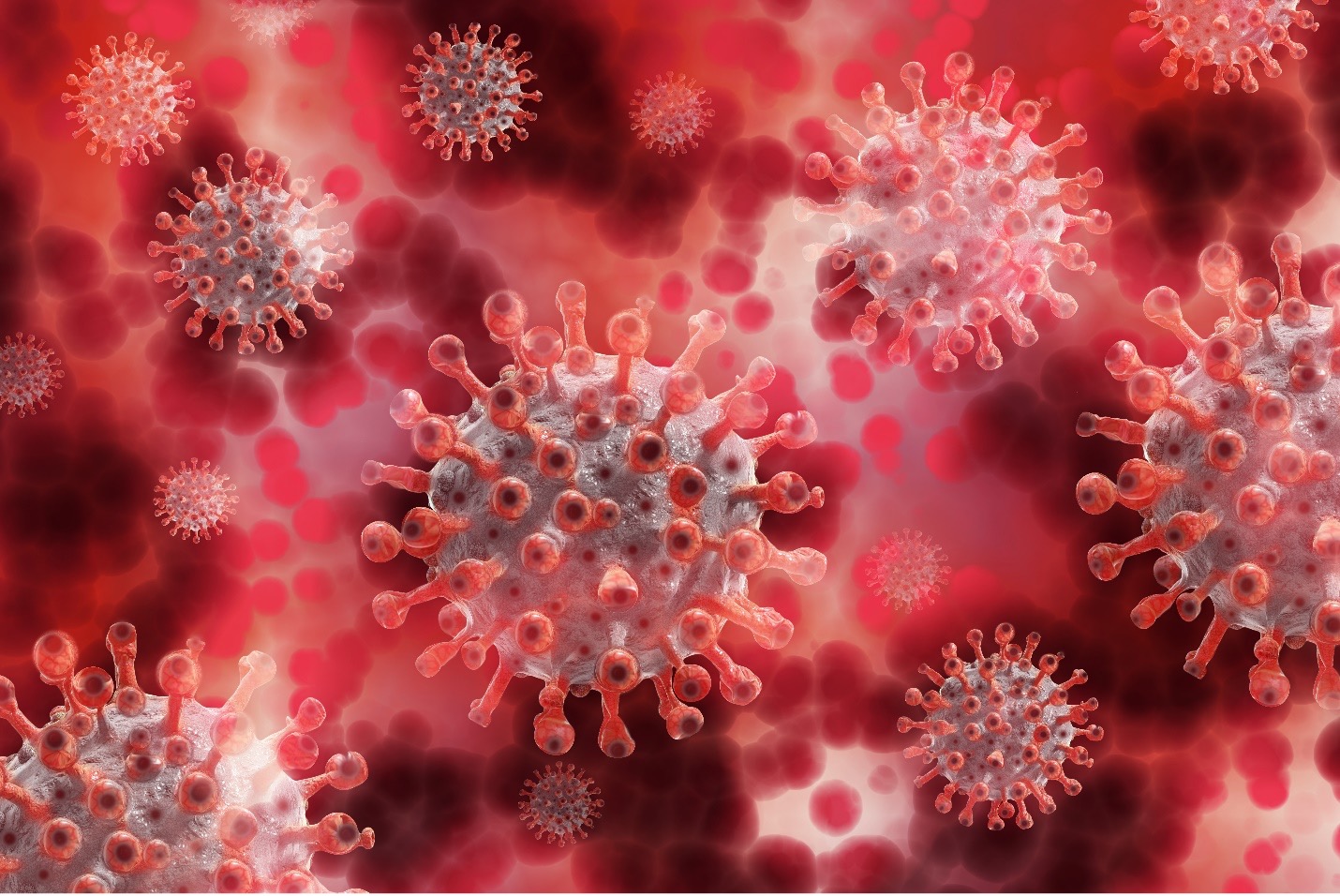 Health & Physiology
Health & Physiology
SARS-CoV-2 induces a sub-optimal immune response that is permissive for viral evolution
The immune system generates antibodies upon infection. However, severe SARS-CoV-2 infection impairs the evolution of antibodies that can bind more tightly to the virus as the immune response progresses. The failure of this evolutionary process in patients generates a suboptimal immune response that might be permissive for the emergence of dangerous variants.

COVID-19 has drawn our attention to the immense power of the immune system. Both when it protects us and when a virus insidiously subverts immunity and turns friend into foe. Many highly precise and orchestrated events shape the way we are protected from pathogens. Our survival in a hostile pathogen-infested world depends on recurring daily episodes of provable evolution of our antibody-generating immune cells.
These events within us are very similar in principle to the more drawn-out changes that Darwin postulated about the origins of species on the Galapagos islands. Indeed, like Darwin's little finches, our immune cells generate little islands called germinal centers where immune cells go through sequential stages of evolution. These include the "genetic diversification" of antibody-producing cells called B lymphocytes, followed by "natural selection" of the B cells that make the highest affinity antibodies and finally the "survival of the fittest" – the highest affinity B cells are immortalized while lower affinity B cells are allowed to wither away and die. While the finches evolved to adapt to their surroundings, our immune cells are asked to evolve when they encounter pathogens; only the very best cells attain immortality and thus protect us for life against pathogens.
Lymph nodes are structures in different parts of our bodies where the immune response is initiated. Daily, microbes enter our airways and lungs, and we generate immune responses against them. These microbes are taken to the nearest lymph nodes in the chest cavity to induce our immune cells to create germinal centers. This is where antibody-producing B cells divide, mutate, are selected and then immortalized.
We already knew that about 90% of patients who had survived SARS in 2002 and 2003 made antibodies against that virus for only about a year, and in only about 5-10% of SARS patients, antibodies persisted for very long times. We suspected that as in SARS, perhaps most patients would not make germinal centers and therefore were less likely to have long-lived antibody-secreting cells that emerge from germinal centers and make antibodies for decades.
To test these notions, we initiated studies to see if mildly and severely ill COVID-19 patients generated germinal center B cell responses. We studied blood immune cells from a range of patients with mild and severe COVID-19 and found that while B cell numbers dwindled in severe disease, patients did initiate B cell responses specific for the virus. We examined chest lymph nodes from elderly people who had passed away in the spring of 2020 but were not infected with the novel coronavirus. We also examined the corresponding lymph nodes from patients who had succumbed to severe COVID-19. While germinal centers were abundant in patients with other illnesses, patients with COVID-19 exhibited a striking loss of germinal centers.
Our detailed studies on T and B cells in patient lymph nodes provided a mechanistic explanation for why germinal centers were lost in severe COVID-19, since the T cell subset that helps initiate germinal centers fails to develop in the inflammatory COVID-19 lymph node milieu. Most significantly, these studies suggested that B cells lose their usual ability to mature and make higher affinity antibodies during COVID-19. The resulting sub-optimal immunity likely allows the virus to more easily evolve within us, thus creating new viral variants.
Original Article:
Kaneko, N. et al. Loss of Bcl-6-Expressing T Follicular Helper Cells and Germinal Centers in COVID-19. Cell 183, 143-157.e13 (2020).
Edited by:
Isa Ozdemir , Senior Scientific Editor
We thought you might like
Blood-eating cells: a defense or a threat?
Aug 21, 2019 in Health & Physiology | 4 min read by Holly Akilesh , Hayley Waterman , Jessica HamermanWake up microglia! How brain state regulates immune cells
Sep 9, 2020 in Neurobiology | 3 min read by Rianne StowellThe Janus-Faced Nature of Cancer Immunity
Sep 21, 2020 in Health & Physiology | 3.5 min read by Chih-Wei Lin , Richard LernerBat genomes: unveiling the secrets of their superpowers
Jun 18, 2021 in Evolution & Behaviour | 3.5 min read by Zixia Huang , Emma C. TeelingMore from Health & Physiology
Tobacco smoking and other exposures shut off cancer-fighting genes
Aug 31, 2024 in Health & Physiology | 3 min read by Jüri Reimand , Nina AdlerA hidden clock that times cytoplasmic divisions
Aug 30, 2024 in Health & Physiology | 3 min read by Cindy OwWhen two kinases go for a dance
Aug 2, 2024 in Health & Physiology | 4 min read by Ioannis Galdadas , Francesco Luigi Gervasio , Pauline JuyouxAwakening the thymus to cure SARS-CoV-2 infection: a matter of genes
Jul 27, 2024 in Health & Physiology | 3.5 min read by Stefano Marullo , Cheynier RemiKeeping the balance: How epigenetics monitors cancer genes
May 13, 2024 in Health & Physiology | 4 min read by Zach Gray , Madison Honer , Johnathan WhetstineEditor's picks
Trending now
Popular topics


